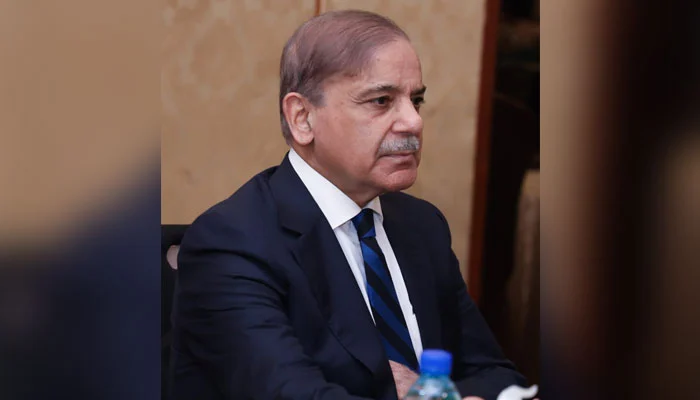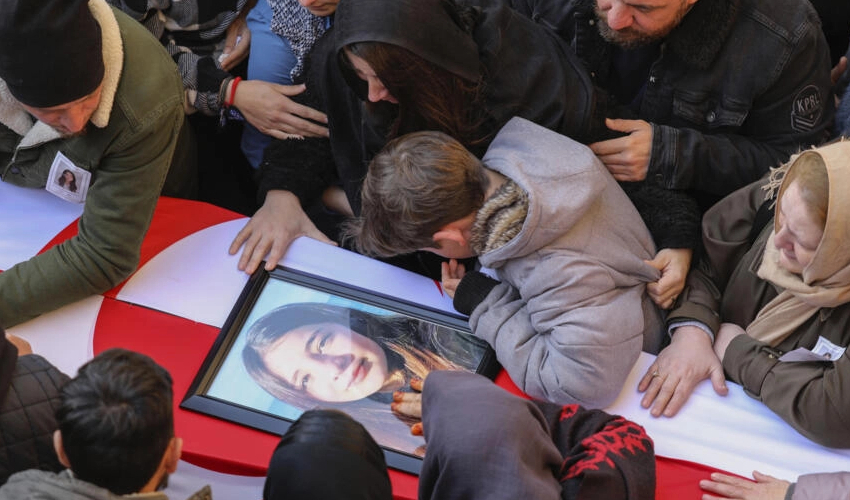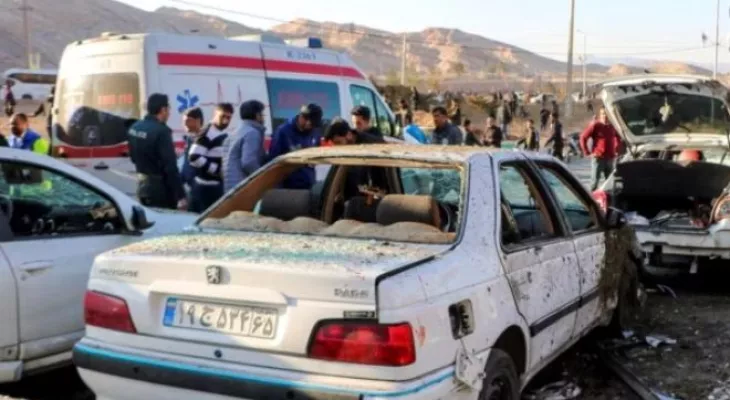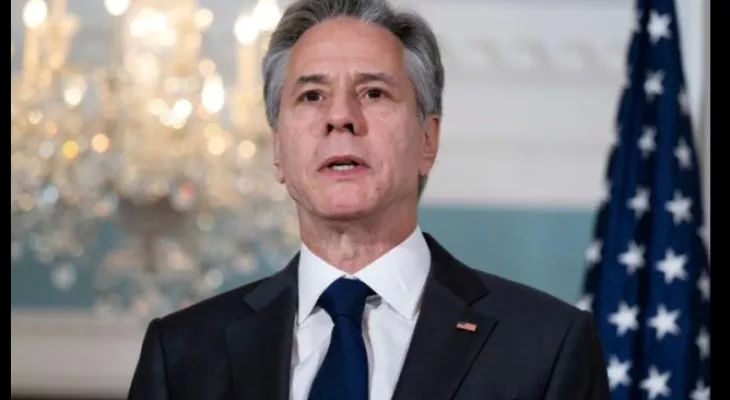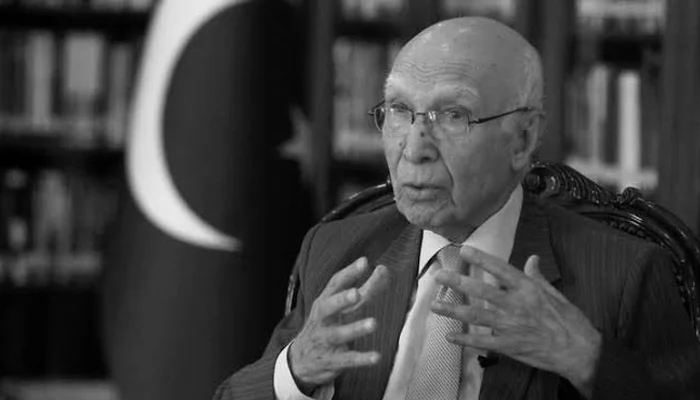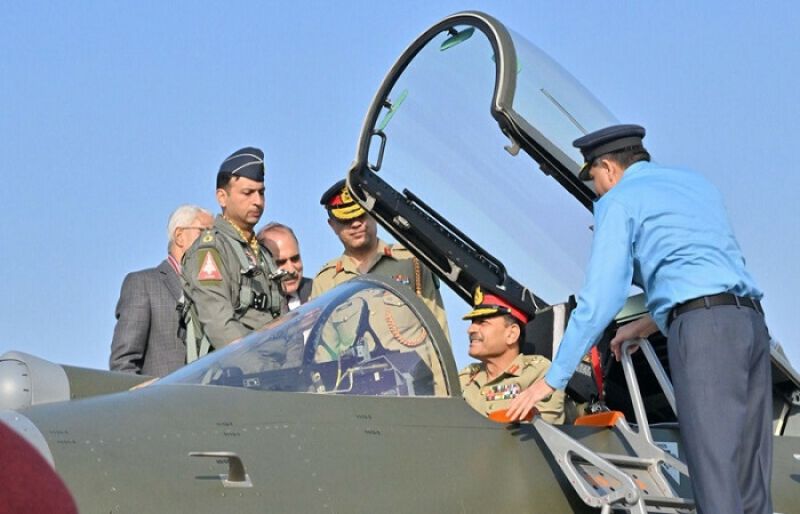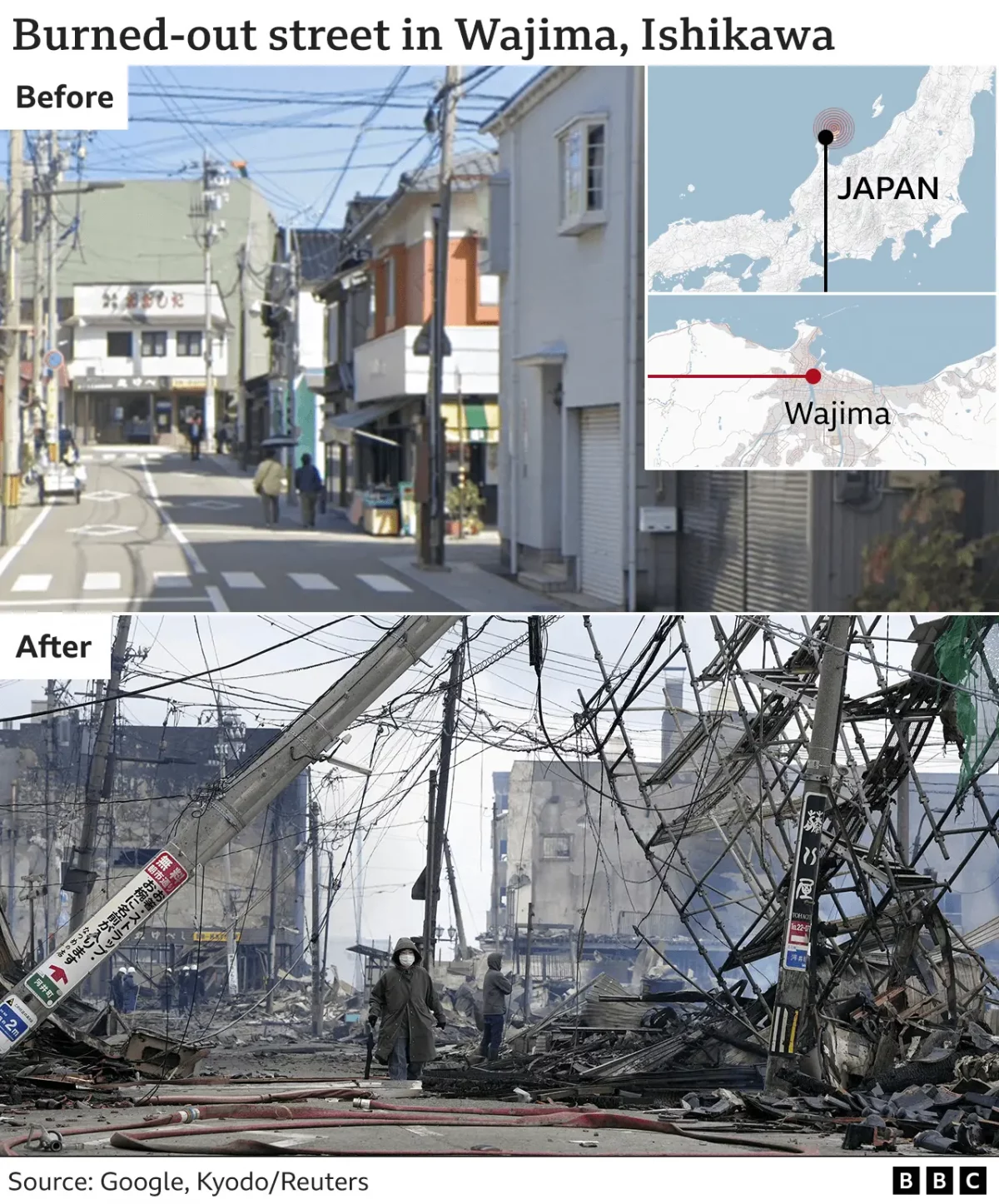US Secretary of State Antony Blinken will leave Thursday on his fourth crisis trip to the Middle East, an official said, as fears mount that the Israel-Hamas conflict will spiral into a regional war.
The top US diplomat will leave Thursday evening from Washington on a trip that will include Israel, the US official said Wednesday on condition of anonymity.
The official did not offer any further detail but Blinken on previous trips has visited a number of Arab countries.
It will mark Blinken’s fourth trip to the region and fifth to Israel — excluding a visit accompanying President Joe Biden — since Hamas militants carried out the deadliest-ever attack inside Israel on October 7, triggering massive retaliation.
On Tuesday, a suspected Israeli strike killed a top Hamas leader in the suburbs of Beirut, raising fears of a wider war.
“It is in no one’s interest — not in the interest of any country in the region, not in the interest of any country in the world — to see this conflict escalated any further than it already is,” State Department spokesman Matthew Miller said earlier Wednesday.
Inside Iran, whose clerical leaders back Hamas, bomb blasts on Wednesday killed at least 95 people as they ripped through a crowd commemorating Revolutionary Guards general Qasem Soleimani, who was killed exactly four years earlier in a US strike ordered by Biden’s predecessor Donald Trump.
The United States denied either it or Israel were involved, with a senior Biden administration official saying it appeared to be a “terrorist attack” along the lines of those carried out by the Islamic State extremist group, which staunchly opposes Shiite-majority Iran.
The Biden administration has backed Israel both with public and diplomatic support and with weapons, with Blinken days ago again bypassing congressional review to rush a sale of weapons to Israel.
Biden’s approach has provoked fury in parts of the Arab world and has proven to be a liability with much of the left-wing base of his Democratic Party, less than a year before elections.
But the Biden administration has also voiced exasperation with Israeli Prime Minister Benjamin Netanyahu and the heavy toll on civilians in the Gaza Strip, as well as provocative statements from Netanyahu’s far-right coalition partners.
The State Department has criticized Israeli National Security Minister Itamar Ben-Gvir, who has called for the removal of Gazans from the Palestinian territory.
Hamas fighters infiltrated Israel on October 7, killing around 1,140 people, most of them civilians, according to an AFP tally based on official Israeli figures.
In response to the deadliest attack in its history, Israel launched a relentless offensive that has reduced vast swathes of Gaza to rubble and claimed over 22,300 lives, according to the health ministry in the Hamas-run territory.
Gaza war tensions spike
Fears that Israel’s war in Gaza could spiral across the Middle East mounted Wednesday after twin explosions ripped through an Iranian crowd, claiming at least 103 lives following a strike in Lebanon that killed Hamas’s deputy leader.
More than 200 other people were wounded when the blasts about 15 minutes apart struck mourners commemorating slain Revolutionary Guards general Qasem Soleimani on the fourth anniversary of his killing in a United States drone strike, Iran’s state media reported.
No group claimed responsibility for the blasts which, according to AFP archives, were the country’s deadliest attack since a 1978 arson that killed at least 377 people.
State-run TV labelled the blasts a “terrorist attack”. They came with regional tensions already soaring a day after the Beirut strike which killed Hamas number two Saleh al-Aruri.
A US official on Wednesday told AFP “an Israeli strike” took the life of Aruri, the most high-profile figure killed during the nearly three months that Israel has been at war with Hamas in the Gaza Strip.
Following Tuesday’s unclaimed Beirut attack, Israeli army spokesman Daniel Hagari said the military was “highly prepared for any scenario”. He did not comment directly on the killing of Aruri, who Hamas said will be buried on Thursday in Beirut’s Shatila Palestinian refugee camp.
Israel and Iran have long been bitter enemies. Violence involving Iran-backed groups in Lebanon, Iraq, Syria and Yemen has spiked during the Gaza war sparked by the unprecedented October 7 attack by Palestinian militant group Hamas on southern Israel.
There have been repeated, deadly exchanges of fire across the Lebanon-Israel border, attacks on shipping in the Red Sea area vital for global trade, and strikes against US-led coalition forces in Iraq and Syria.
More intense wider warfare has so far been avoided, but the Iran blasts rattled global markets, sending oil prices up by more than three percent.
Following the Aruri killing, Germany warned its citizens to leave Lebanon quickly and said, “further deterioration of the situation and expansion of the conflict cannot be ruled out”.
– Cross-border fire –
The bloodiest-ever Gaza war started after the Hamas attack on Israel resulted in the death of around 1,140 people, most of them civilians, according to an AFP tally based on official Israeli figures.
Militants took around 250 hostages back to Hamas-ruled Gaza, 129 of whom remain in captivity, according to Israel.
In response to the deadliest attack in its history, Israel vowed to destroy Hamas, launching a relentless bombardment and ground invasion that has reduced swathes of Gaza to rubble and claimed at least 22,313 lives, according to the territory’s health ministry.
The United Nations estimates 1.9 million Gazans are displaced, and the World Health Organization has warned of the risk of famine and disease, with only a minimal amount of aid entering.
After Tuesday’s killing of Aruri, Lebanon’s Iran-backed armed group Hezbollah blamed its foe Israel for the strike in its Shiite Muslim stronghold of southern Beirut.
Although Israel did not claim the assassination, Hamas and Lebanese security sources accused it of killing Aruri, 57, a founder of the Hamas military wing.
Hezbollah vowed the killing of Aruri and six other Hamas operatives would not go unpunished, labelling it “a serious assault on Lebanon… and a dangerous development”.
Hezbollah leader Hassan Nasrallah warned Israel against all-out war on the country to its north. But in a televised speech he also said Israel has sent “messages” that it was “settling scores” with Hamas leaders and did not intend to target Lebanon or Hezbollah.
During the Israel-Hamas war, including on Wednesday, Israel has traded regular cross-border fire with militants, mainly Hamas ally Hezbollah.
Iran’s Foreign Minister Hossein Amir-Abdollahian said the Beirut strike proved Israel “has not achieved any of its goals”.
A few hours after those remarks, blasts in Soleimani’s hometown of Kerman, Iran, tore through crowds gathered to honour Soleimani, the commander killed in a 2020 Baghdad drone strike by Israel’s top ally the US.
Soleimani headed the Quds Force, the foreign operations arm of Iran’s Islamic Revolutionary Guard Corps, setting Iran’s political and military agenda across the region.
Iran declared Thursday a day of mourning. Supreme leader Ayatollah Ali Khamenei blamed “evil and criminal enemies of the Iranian nation” and said: “This disaster will have a harsh response, God willing.”
Following the blasts, President Ebrahim Raisi cancelled a Thursday visit to Turkey.
Saudi Arabia, which last year reconciled with Iran after a seven-year diplomatic rupture, expressed “sincere condolences, sympathy and solidarity with Iran in this painful event”.
Washington also expressed sympathy “to the victims and their loved ones,” while calling “ridiculous” any suggestion of US involvement.
“We have no reason to believe that Israel was involved in this explosion,” State Department spokesman Matthew Miller added.
Israeli military spokesman Hagari did not comment when asked about the Iran blasts. “We are ready on all fronts,” he said.
– ‘Settling the score’ –
Israel has vowed to kill commanders of the Hamas Islamist movement, which is considered a “terrorist” group by the United States and European Union.
The head of Mossad, David Barnea, said Israel’s spy agency “is committed to settling the score with the murderers” who carried out the October 7, and with Hamas’s leadership.
European Union foreign policy chief Josep Borrell warned the strike that killed Aruri was “an additional factor that can cause an escalation of the conflict”.
In the Israeli-occupied West Bank, the Palestinian territory where Aruri was born, the Palestinian Authority called a general strike to mourn his death.
During the Israel-Hamas war violence in the West Bank has surged to levels unseen in nearly two decades, with at least 321 Palestinians killed by Israeli troops or settlers, the Palestinian health ministry said.
At a protest in Ramallah on Wednesday against Aruri’s killing, one resident, Hala Abu Gharbiyeh, said his death will not affect “the resistance.”
“These people carry messages of eternal freedom until the occupation is defeated. The message cannot stop with the martyrdom of the leader,” she said, holding a Palestinian flag.
In Israel’s northern coastal city of Nahariya, near the border with Lebanon, many people are carrying weapons. Residents said they fear Aruri’s killing could spark war in their region.
“We’re scared,” said Lee Zorviv, a clothing store owner.


